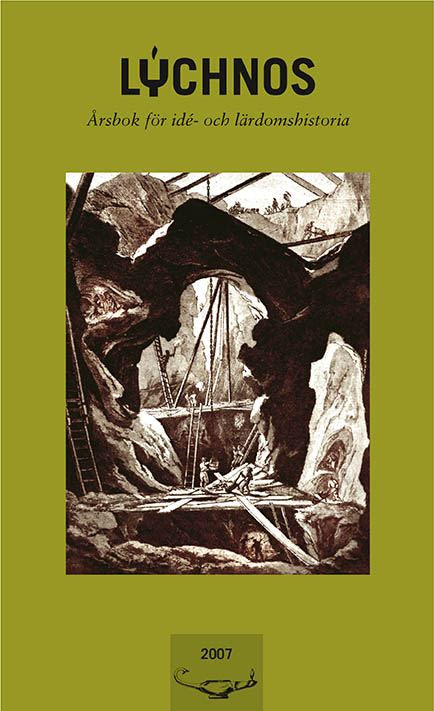Nietzsche och revolten mot historien
Abstract
Throughout his life, Friedrich Nietzsche was preoccupied with historical themes. He lived in an age when historical accounts played an essential role in intellectual, political and cultural life, and he became a professor of classical philology at a time when the discipline was heavily influenced by historical perspectives. Given all of this, it is interesting that his Vom Nutzen und Nachteil der Historie für das Leben (1874) delivered such a harsh critique of the historical Bildung of his time. Unlike most scholarly studies of the work, this article analyses Nietzsche's famous pamphlet in the context of modern historical thinking in the 18th and 19th centuries. The German context of development is of particular interest here; the results of modern Begriffsgeschichte are utilized in the analysis. The thesis is that Vom Nutzen und Nachteil der Historie für das Leben should be read as a philosophical negation of modern historical thinking. Nietzsche is aware of the contrast with classical historical thinking, and his own his conceptual constructions can be said to undermine and surpass the foundations of modern historicity. With the conceptual triad of historical, unhistorical and suprahistorical thinking, Nietzsche opens up for a multiplicity of life-orientations. The historical outlook is but one of three possible ways of seeing the world and of living one's life. Furthermore, with the conceptual triad of monumental, antiquarian and critical, he indicates that there are different forms of historiography, and that these are grounded in their value for life. The crucial aspect of this conceptual usage is that it turns the whole issue around. By talking about history in terms of Historie and das Historische, Nietzsche gives primacy to the historian and his mode of life. His question is no longer the typically modern issue of history as process and reality, and even less a concern with its direction and meaning. This is the point at which the concept of Geschichte loses the ontological status it had acquired in the late eighteenth century. By connecting the concept of history to the activity of the subject, the concept of history is by definition subordinated to the concept of life. Furthermore, regarded as a life-orientation, history can be evaluated. How much history is beneficial for life? And what sort of history should be cultivated? With these questions, Nietzsche breaks with the modern conceptual foundations of the historical revolution, and its implications are negated.
Downloads
Publicerad
Nummer
Sektion
Licens
This work is licensed under a Creative Commons Attribution 4.0 International License. The copyright for the work published in Lychnos remains with the authors.


